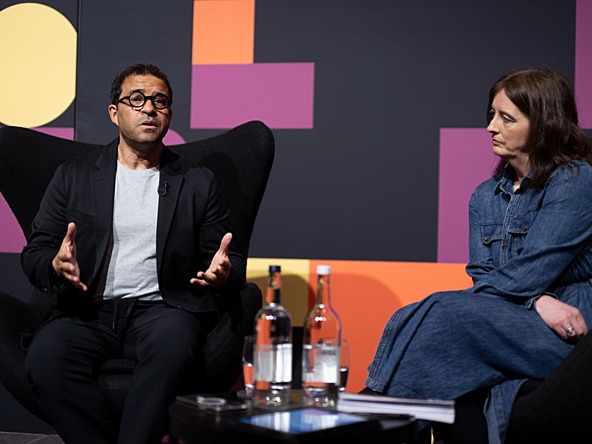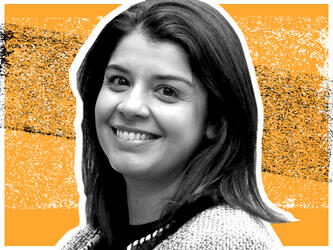Raphael Rowe: ‘We shouldn’t underestimate our audience’

Speaking in a keynote session, the former BBC journalist and current presenter of Inside the World’s Toughest Prisons on Netflix said that he sought to find the truth in his investigations.
“I am driven by the evidence and the facts – always have been, always will be – and so I don’t give an opinion. I never have. I don’t make judgement based on what I don’t know,” Rowe said.
“A lot of what I did in the early days was to go undercover. It was about getting the evidence, getting the facts, speaking to people, hearing and seeing it for myself, and then I could stand by it. It was about being able to stand strong and firm and say ‘this I believe in because I have seen and heard it for myself’. Not scientific, but just dogged, old-school investigation.”
Rowe wrongfully spent 12 years in prison between the ages of 20 and 32 for a crime he did not commit, with a life sentence for robbery and murder overturned in 2000.
Upon leaving prison, he then worked as a journalist, joining the Today programme within a year of leaving prison, later moving on to roles at the Six ‘o’clock News, BBC Three and Panorama before taking up his current job at Netflix, as well as running a podcast and forming a charity.
Speaking at the conference, Rowe said that he had needed to overcome numerous obstacles in his life and career. “The BBC employed me because I was different – because I did things differently and I thought differently. My purpose came from my own suffering – I was drive by the sense of injustice as my career developed.”
He added: “Once I found my voice in that room, I became so powerful. I was in that room because I was different. I was given that opportunity because I was different. Once I realised that, I became so powerful. It didn’t matter that I couldn’t articulate the story or pitch it in the way my colleagues could.”
Rowe also discussed his approach to editing his work, noting that he restricts what is presented to editors to make sure the final cut reflects the reality of what was originally filmed.
“I don’t need to be in the edit room anymore – I do it on the ground, in the field when I am gathering the content,” he explained.
“Before we start filming and gathering the evidence, I do the filtering – I get rid of the bravado from the individuals and wait until they really start to talk to me in an authentic, honest and direct way.”
Audiences are discerning as well, Rowe said. “I think we shouldn’t underestimate our audience. We live in an age where people can and do make judgements based on what’s presented to them. If you want to spin them a line, spin them a line – you know and they know you’re spinning them a line and you’re not giving them the truth. People will believe what they want to believe.
“For me, it is not about whether people want to believe what they’re being presented, it is what is being presented, and they can make an informed judgement about what they do next based on that insight.”
He added: “It is about how you present the information and how you give over that insight. And then leave it for people to decide for themselves. Why do we have to control how people think and what they believe and shouldn’t believe?”
He said that individuals, not systems, were often at fault for miscarriages of justice, noting that in his case, the prosecutor had pushed for his conviction alongside two others despite none matching the descriptions and evidence given by the victims.
“I have all the faith in the justice system. I am not an advocate that it is the system [that is the problem] – it is the individuals that work in those systems,” Rowe said.
“That comes in any industry or infrastructure. It is the individuals that are in a position to make decisions that can dictate whether it has integrity or not.”

We hope you enjoyed this article.
Research Live is published by MRS.
The Market Research Society (MRS) exists to promote and protect the research sector, showcasing how research delivers impact for businesses and government.
Members of MRS enjoy many benefits including tailoured policy guidance, discounts on training and conferences, and access to member-only content.
For example, there's an archive of winning case studies from over a decade of MRS Awards.
Find out more about the benefits of joining MRS here.














0 Comments